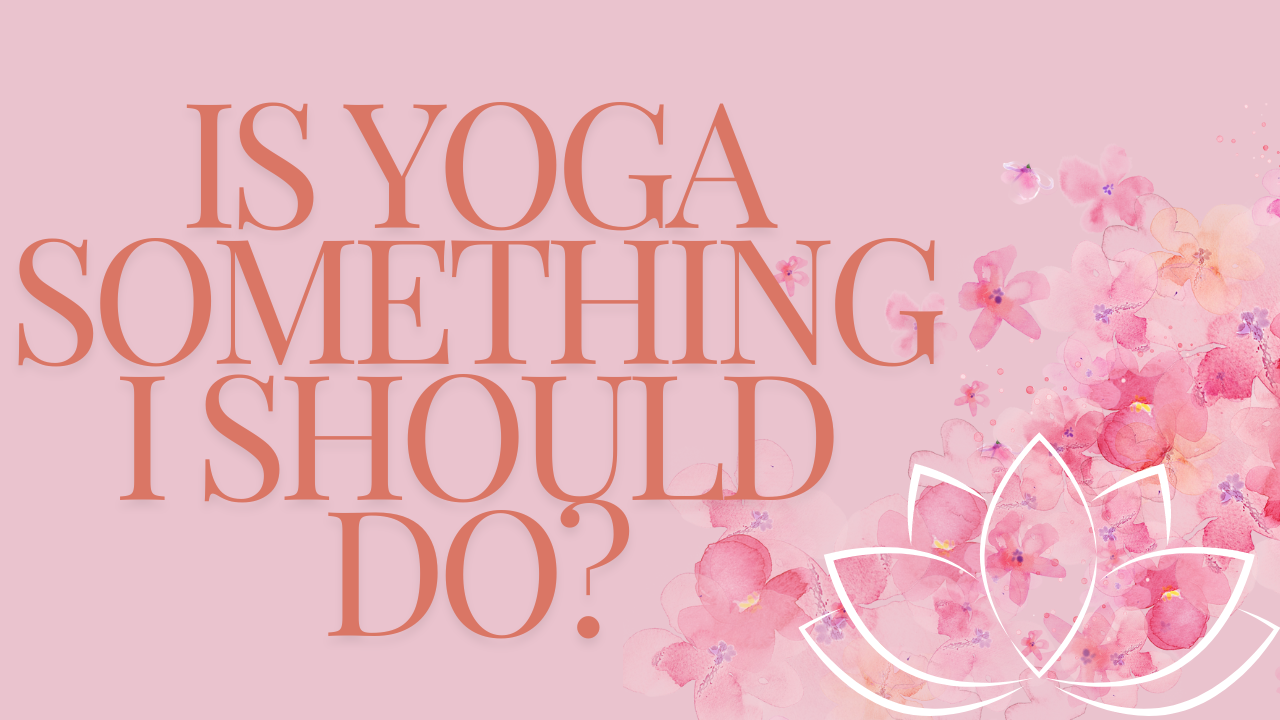Welcome back to another post! Today’s topic is yoga, something I chose to research as an undergrad for a few classes. If anyone is interested in reading those (I can’t guarantee they’re the best, though I did get good grades on them lol), let me know and I’ll be happy to send you a copy! If you aren’t in the mood for reading a long paper, I’m going to go over all the highlights in this post, and it will arguably be more fun to read here.

Playing an instrument in general can make our bodies really tense, especially if we’re not holding our instruments in the best way. Some instruments, like flute and violin, are even harder to hold in a way that will cause no tension. There will always be some, which is why it’s important to combat that. Taking breaks is so important when practicing for a long time. Holding your instrument the same way and standing the same way for hours will cause pain. And pain is not gain in the case of practicing an instrument. Less pain = gains. Of course, you could just take a break and scroll on your phone. Or, you could do a quick yoga session, or just stretch. As flute players, the typical areas of concern are our shoulders, wrists, neck and even fingers. Yoga is able to target all of these.
Yoga, at its base, is going to help stretch sore muscles and relieve tension. So if you are feeling tight from practicing, doing yoga can really help that, if you don’t overdo it and try to stretch in ways you’ve never stretched. It also strengthens your body. Yoga takes a surprising amount of strength to do! A flute may be a small instrument that’s easy to carry and hold, but you’d be surprised at how much strengthening your arms and shoulders can do if you’re feeling pain there. This is why musicians can be more at risk for things like arthritis, which surprise, is something yoga can help with. That strengthening is also what can help you have better posture, both in daily life and when you are practicing!
Many types of yoga have a heavy focus on mind-body-breath connection, which can be essential for musicians. So much of playing a wind instrument unsurprisingly, takes a lot of control of your air. Yoga can help harbor the relationship from your breath to your body flourish. It’s almost a full circle with yoga in a way. Better posture = better breath = better sound.
Most of this is just try it and find out for yourself. I can talk about the benefits for hours, but you won’t really know unless you try it. I feel like the biggest excuse for not trying out yoga is time. We have work, practicing, life and so much packed into our days. Some days there truly is no time to set aside for an hour long yoga session or even a minute session. Sometimes you just gotta eat a tub of ice cream with your spare 5 minutes. But maybe there’s time for a 20 minute session. It doesn’t have to be long, even 5 minutes of yoga can be beneficial.

Starting this section by clarifying that yoga is not an end all be all solution for mental health. It’s something that can help and be used as a tool, but it will not magically cure you of anxiety.
Speaking of anxiety, so many musicians suffer from anxiety, be it “regular” or “performance”. It’s really quite common and normal. Being anxious or nervous about a performance just means that you care about how it will go. Not feeling any sort of nerves would be kinda weird. It’s a natural reaction. Yoga is a tool you can use to ease performance anxiety. Once again, yoga can help with the connecting of the breath to the mind and body, which can be helpful with performance anxiety. Yoga teaches different breathing techniques that you can use to help ease that anxiety. Many times when we’re nervous or anxious, our breathing is quick to change. It can become shallow and/or rapid. Using some breathing techniques can slow the breath down as well as deepen it, which in turn signals to our brain that we’re okay (it’s more complicated than that, but the point is breathing can calm you down). Try it right now, take a deep breath in and out. Feel better already don’t you? It’s calming even if you don’t feel super anxious at the time. It can help ground someone who’s anxious.
Another thing I would recommend looking into if you struggle with performance anxiety, or even tension, is the alexander technique. For physical aspects, I found it helpful to identify where I’m tense and how to release that tension with my alexander technique teacher. For me it was a very tactile learning experience and hard to put into words. One of the biggest takeaways I got from the class though was two grounding techniques, both of which you can practice daily. The first is quite literally laying down on the ground with your legs bent and just letting yourself melt into the floor. If you’re trying this (constructive rest is the fancy term) for the first time, having a meditation playing or something can be helpful. But the purpose of it is to really feel the ground beneath you, supporting you. Practicing this often helped me relax SO MUCH….and yes…I have done this in public at auditions and performances. To summarize my teachers words, who cares what you look like as long as it helps? You’re the one that’s going to feel better after anyway. So don’t worry about looking crazy, or find somewhere where there’s no one around.
The other technique I couldn’t really tell you why I find it helpful, but I do. It’s basically sensing the room around you with your eyes closed. Weird, I know. But if you close your eyes, allow yourself to focus on where the room is. How far away is the ceiling? The floor? The right/left wall? I think this can help if you begin to feel more suffocated to close your eyes and realize how much space there is. You can get fancy too and feel the space between your body and the walls, one wall to the other, etc.

My number one favorite person to go to for yoga videos is unsurprising to anyone who’s looked up yoga videos: Yoga with Adriene. These three videos I’ve have found to be particularly helpful when I feel I need a good stretch, or to release some tension. There are a plethora of videos on YouTube though and I encourage you to try some out and find what you like! Or maybe try a few yoga classes!

I hope you found this post to be helpful, or at least interesting. Yoga is something that I do think really helps me personally, though I don’t do it as much as I should, which is something I’m trying to change. I’m going to list the bibliography I used for my paper here, in case you want some further reading, or to get more information from some more scholarly people, and once again, if for some reason you’re interested in reading my full paper, let me know and I’ll be happy to share it. Namaste!
Ahmed, Khalique, and Butzer, Bethany, and Khalsa, Sat Bir S. “Yoga Enhances Positive Psychological States in Young Adult Musicians.” Applied Psychophysiology & Biofeedback 41 (2): 191–202. Accessed March 16, 2021. doi:10.1007/s10484-015-9321-x.
Bernstein, Susan. “Yoga Benefits for Arthritis.” Arthritis Foundation. Accessed April 21, 2021. https://www.arthritis.org/health-wellness/healthy-living/physical-activity/yoga/yoga-benefits-for-arthritis#:~:text=People%20with%20various%20types%20of,tension%20to%20promote%20better%20sleep.&text=Many%20people%20turn%20to%20yoga,tension%20and%20improve%20joint%20flexibility.
Borden, Brianne. “Yoga for Musicians: A Practical Guide to Using Common Yoga Techniques for Performing Musicians” PhD diss., Arizona State University, 2020, ProQuest.
Dill, Brandon and Hatschek, Keith. “Yoga for Musicians.” Disc Makers Blog, (2015). Accessed March 1, 2021. https://blog.discmakers.com/2015/07/yoga-for-musicians/.
Hardy, Micheal. “Breathe Deep, Play Well: Can Yoga Aid Music Study?” Boston Globe, August 20, 2006. ProQuest.
Kaplan, Ilana. “Teletherapy, meds, meditation: How musicians with mental health issues are coping with corona anxiety.” Los Angeles Times, April 27, 2020.
Lavelle, Phelan. “Get Lifted: Music and Yoga are Halves of a Whole.” Flagpole, Oct 15, 2014. ProQuest.
Lear, Megan E. “Yoga, Flow and Art Therapy: An Investigation Into Yoga’s Effect on the Creative Process” masters thesis, Notre Dame de Namur University, 2017. ProQuest.
Phillips, Ruth. “And breathe…” The Strad 130 (1549): 54–58, May 2019. EBSCOHost.
Stern, Judith R. “Evaluation of a Yoga Intervention For Music Performance Anxiety in Conservatory Students: A Pilot Study” PhD diss., Boston University, 2012. ProQuest.
Uebelacker, Lisa A., and Broughton, Monica K. “Yoga for Depression and Anxiety: A Review of Published Research and Implications for Healthcare Providers.” Rhode Island Medical Journal 99, no. 3: 20–22. EBSCOHost.

